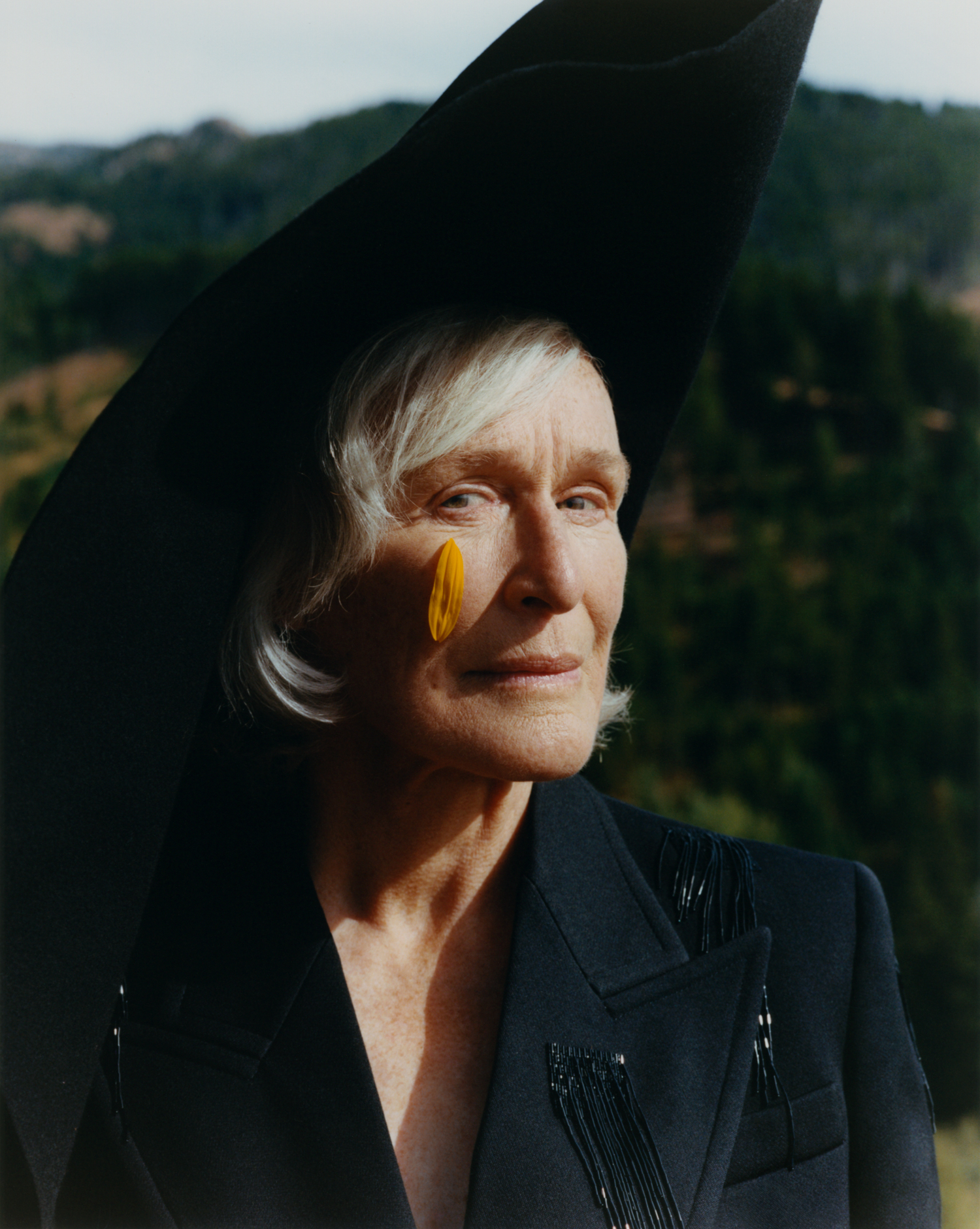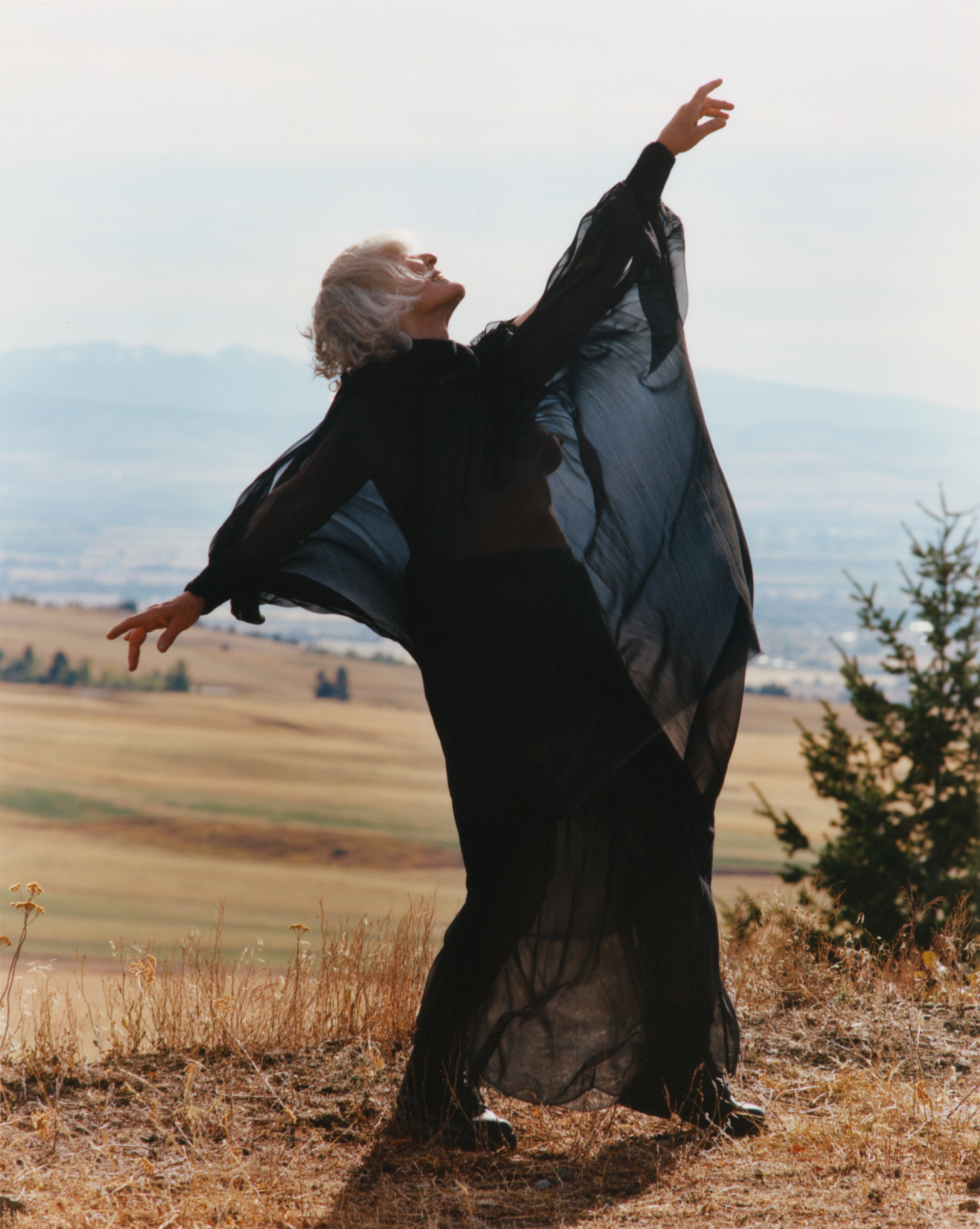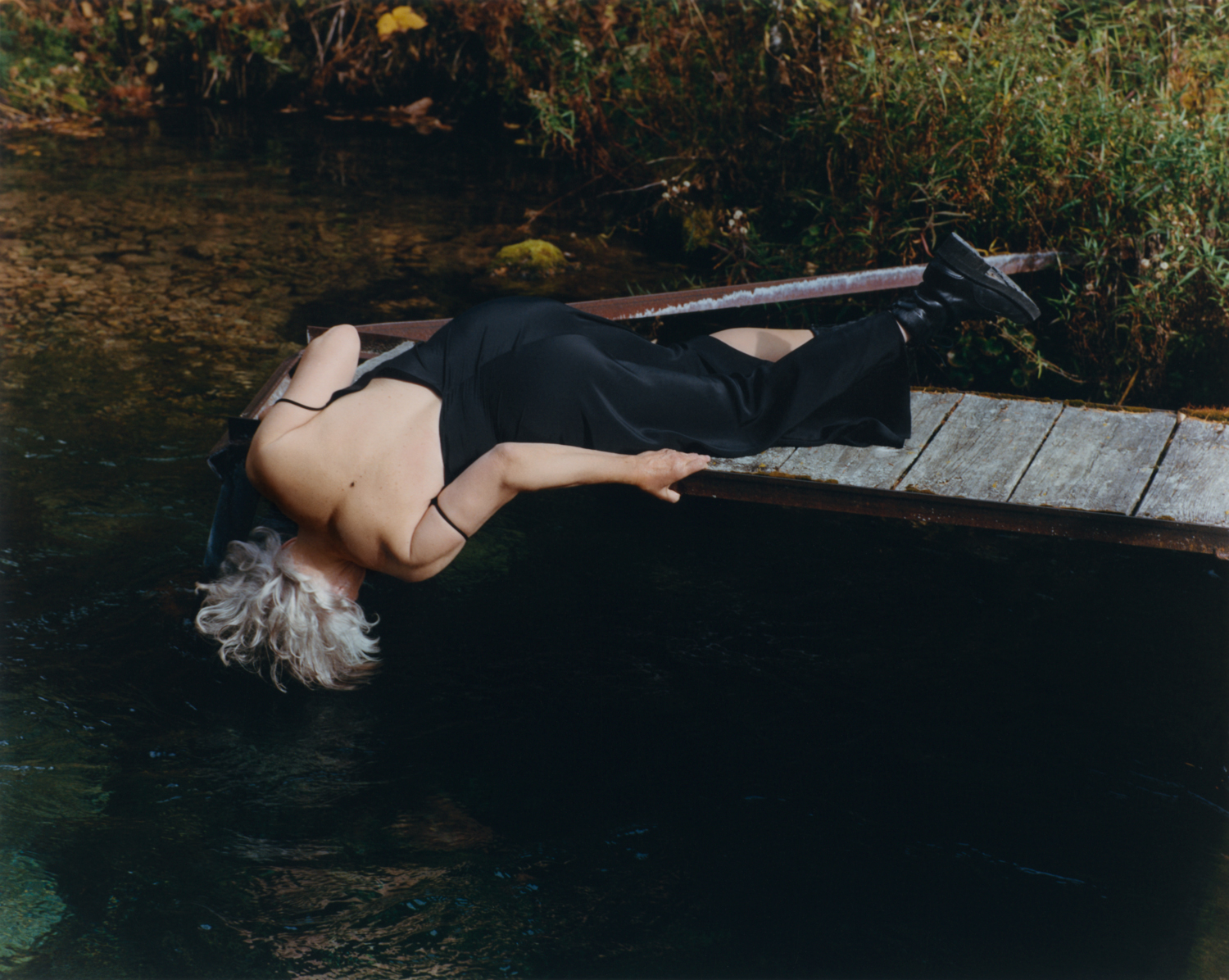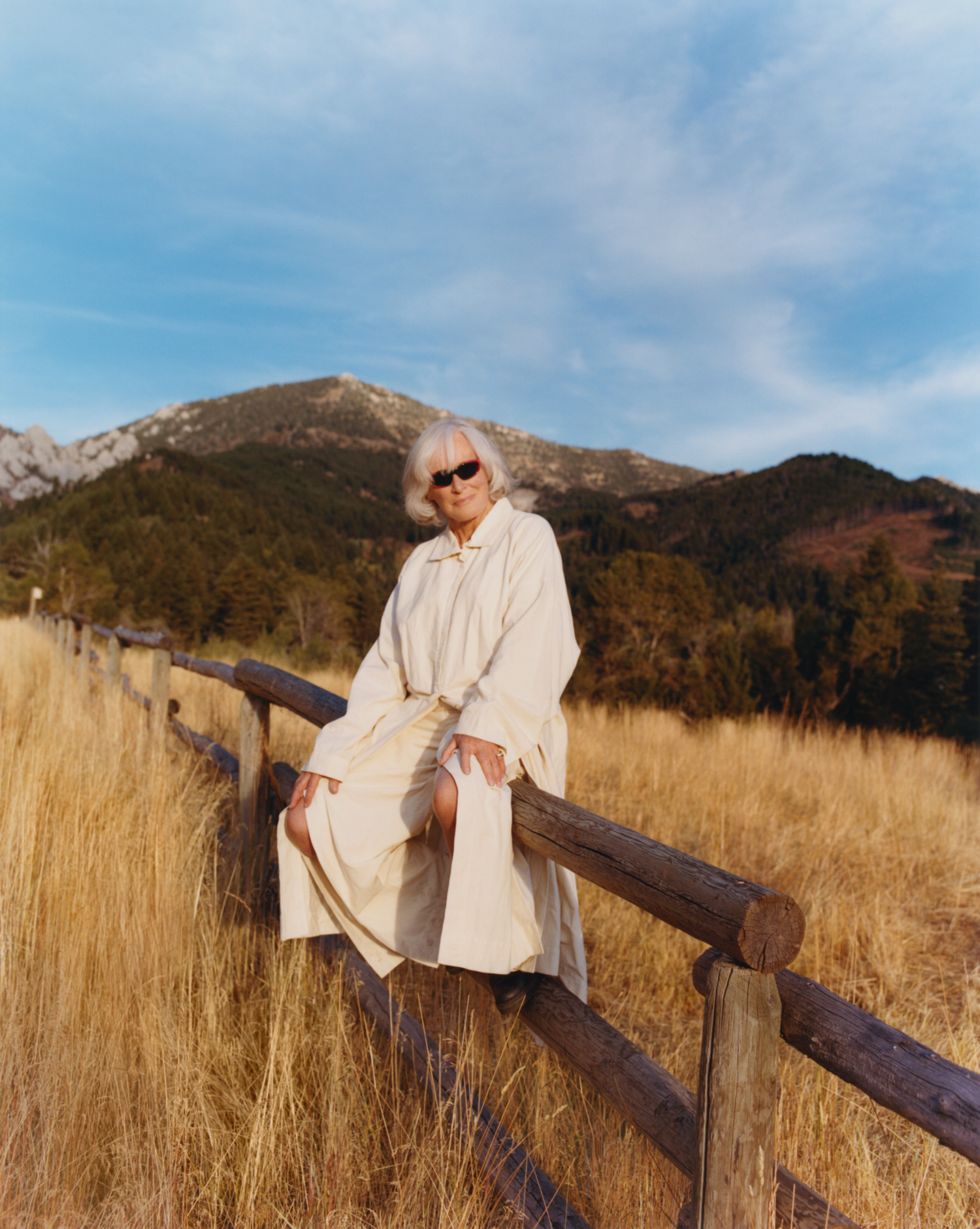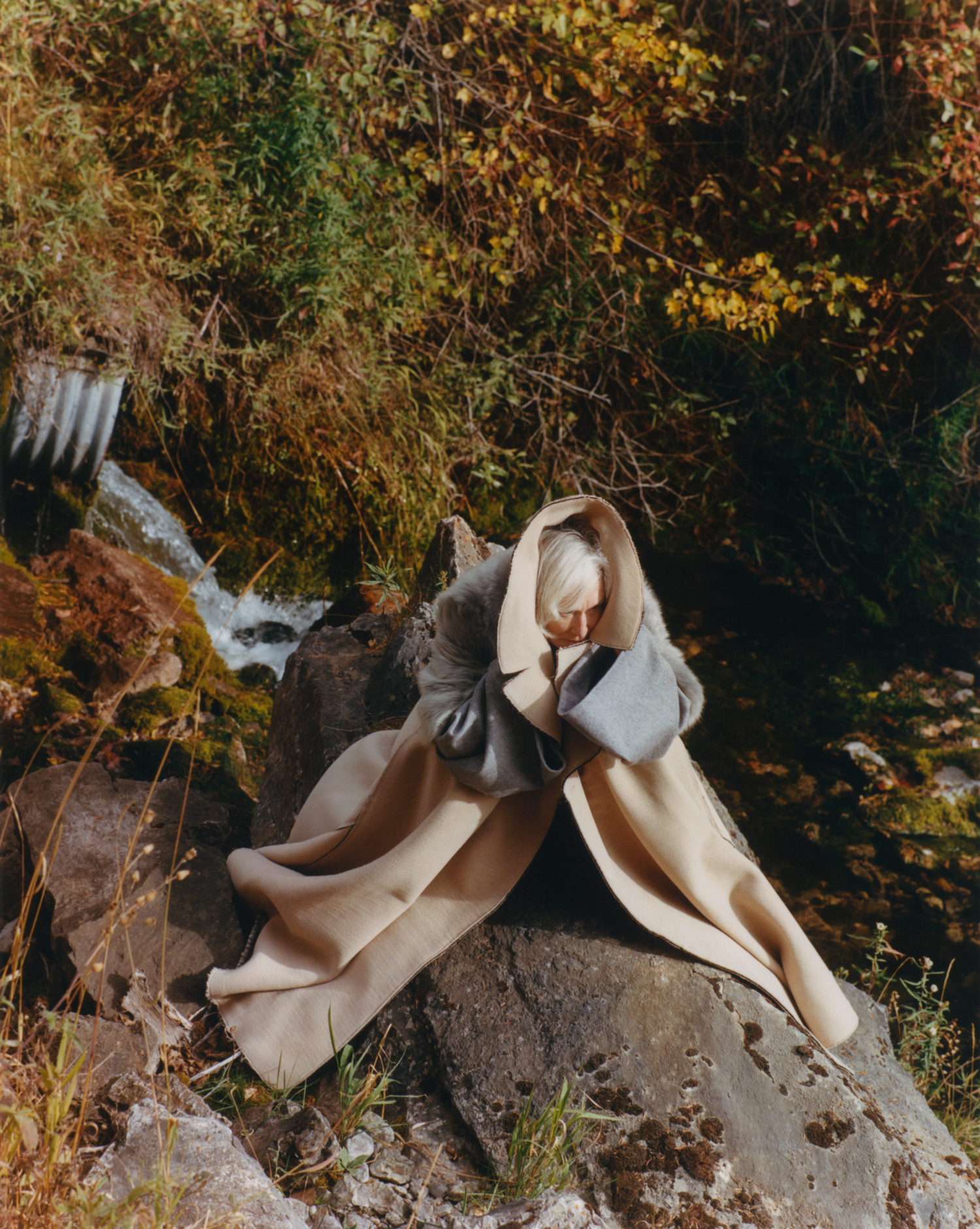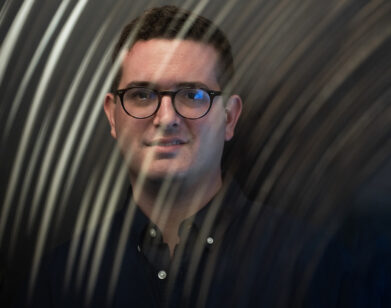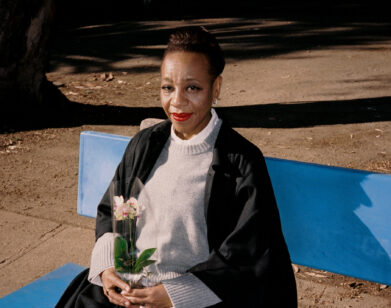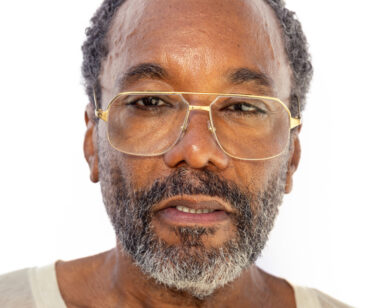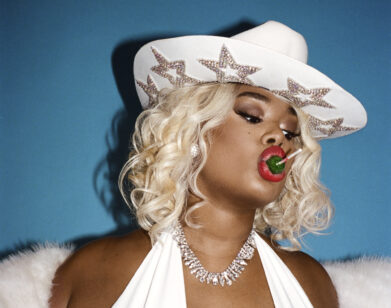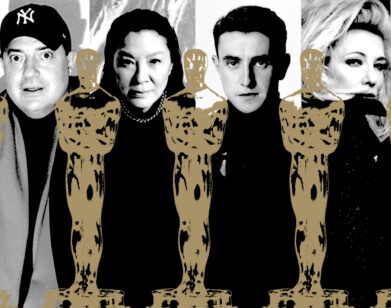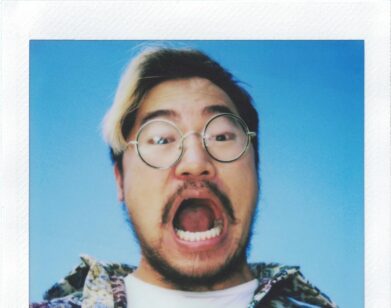icons only
“No Regrets”: Glenn Close and Whoopi Goldberg Discuss Their Singular Careers
One major misperception in Hollywood lore is that an actor’s talent can be measured by the number of Academy Awards they’ve won. It’s a faulty yardstick for gauging genius, and one need cite only a single example as proof: Glenn Close. A nominee several times over in her illustrious, shape-shifting career (starting with a string of Best Supporting Actress nominations three years running in the mid-1980s for The World According to Garp, The Big Chill, and The Natural), Close has never taken home the big prize. And while her 2019 Best Actress nomination for The Wife was expected to break the streak, Olivia Colman ended up walking away with the trophy (to Colman’s credit, she apologized to Close in her acceptance speech).
But let’s set the record straight right here and now: Without a shadow of a doubt, hands down, Glenn Close is one of the most beguiling and daring actors ever to appear on film. Nobody inhabits a role with such commitment, which is saying something, because she often chooses characters who are not easy to admire. Thankfully, likeability doesn’t seem to be the lure. The physical and psychological force of her hostile antiheroines—whether it’s the Marquise de Merteuil in the carnal period piece Dangerous Liaisons, Alex Forrest in the steamy, rabbit-stew-y thriller Fatal Attraction, Sunny von Bülow in the ripped-from-the-headlines high-society court procedural Reversal of Fortune, or Patty Hewes in the lawless legal drama Damages—is so intense, so fire-breathing, that the performance lingers in the mind far longer than any awards ceremony.
Her legend established, Close could have sailed into our hearts instead of our brains with lighter, sweeter fare in re- cent decades, but she has chosen to bore deeper into the human condition. Take, for example, her latest role as the cursing, chain-smoking, Appalachia-infused Mamaw in Ron Howard’s film adaptation of the bestselling memoir Hillbilly Elegy. Playing opposite Amy Adams, Close’s character is the complex moral center of the story, the glue that holds this very splintered family together. Physically—in baggy t-shirts, curly white hair, and glasses—Close is un- recognizable, yet the character is so convincing and fully alive, it’s as if Close were born to play this part. In truth, she was born to play all the parts she’s chosen (including the notoriously reclusive Norma Desmond in the upcoming, long-gestating remake of the noir classic Sunset Boulevard, a role which won her a third Tony Award on Broadway). It would be about time if Hillbilly Elegy brought Close her first Oscar win, but at this point, who cares? To hear her speak to her good friend Whoopi Goldberg from her home in Bozeman, Montana, she certainly doesn’t seem to.
———
WHOOPI GOLDBERG: Hi, baby.
GLENN CLOSE: It’s so good to hear your voice.
GOLDBERG: And yours. Are you on a set?
CLOSE: I wish, but I’m in my little house in Bozeman.
GOLDBERG: What’s the last thing you did on film?
CLOSE: Except for this crazy thing that I did for amfAR [playing Roy Cohn in a live-streamed performance of Angels in America to support the Foundation for AIDS Research’s Fund to Fight COVID-19], the last major thing I did was Hillbilly Elegy.
GOLDBERG: I love the book. How did you come to it?
CLOSE: I had read the book and was intrigued by it. When I heard that Ron [Howard] was developing the script, I wrote him a letter. You wouldn’t necessarily say I was right for that part, but I wanted the chance. And bless his heart, he was up for it.
GOLDBERG: You’ve had lots of roles that people didn’t expect you to pull off.
CLOSE: Yes!
GOLDBERG: That doesn’t even make sense.
CLOSE: It makes total sense. I know you’ve experienced this as well. With Fatal Attraction, they were so sure I could not play that role that when I was flown out to L.A. to have what I felt was an agonizing session with Michael [Douglas] and a video camera, my whole soul shrunk into the size of a walnut when I walked into that room. It was kind of a mercy audition, because my agent had been so relentless. And then at one point, Adrian Lyne [the film’s director] went down the hall and said, “We have her.” Albert Nobbs was another one of those times.
GOLDBERG: Really?
CLOSE: Oh, yeah. I developed that material for 14 years. I went to every single head of every single independent film company several times, and I was really good at pitching the story, but they just didn’t get it. They couldn’t see me as a butler in 19th-century Dublin.
GOLDBERG: That’s extraordinary. What do people think actors do?
CLOSE: I don’t know about you, but I was really bad at auditioning in the beginning of my career.
GOLDBERG: I’m still bad.
CLOSE: Now, they have to memorize lines. If I had to do that, I would have never gotten hired.
GOLDBERG: The World According to Garp is one of my favorites. Do you think people know how to make these kinds of movies anymore?
CLOSE: They know how to make them, but the whole industry has changed so drastically that the process has blown up. For example, Hillbilly Elegy is the kind of film that used to get made, but now you have the money from something like Netflix to make it, with the idea that it will have a limited run in theaters. And then it will be streamed and millions more people will see it. You have the opportunity to have a vast audience in a diminished arena, meaning the size of the screen. One great thing that theater has that we all miss is creating a community over the course of a play. The same thing can happen in a movie house. That’s an important element of what we do, because the stories we love are the ones that remind us of our common humanity. And if you’re witnessing that story in the company of other humans, that is a beautiful beginning, middle, and end in itself.
GOLDBERG: When you look at the breadth of your work, do you say to yourself, “There are still a couple of things I want to do?” Are you still hungry in that way?
CLOSE: Oh, yes. It’s very ironic, Whoop. Here we are in these bodies, and I look at my arms in the morning, when the relentless light slants through the window, and I’m still astounded that it’s me, because I’m not that. I’m not my body. I happen to be put into this house for this particular journey, but I’ve always felt that who I am is who is looking out the window of my eyes. So here we are, caught in our bodies, being judged by our bodies, and we are not that. If anything, we’re better. It’s all about stories. Everybody has a story, and they’re all fascinating. For 99.99 percent of the people in the world, no one will hear their stories, but they’re just as important as everyone else’s.
GOLDBERG: If people are interested enough to find out who and what you are, it’s a wonderful thing. And I’ll transition that into talking about Bring Change to Mind, because many people don’t feel like they’re being seen, or feel like they’re just dwellers on a threshold and don’t know how to make the step, or sometimes feel incapable of making the step. What has Bring Change to Mind done since its inception?
CLOSE: Sometimes—especially when we’re surrounded by stigma, be it depression, anxiety, bipolar disorder, or schizophrenia—the first step to getting help is just having the courage to talk about it. So I co-founded Bring Change to Mind because my sister Jessie had the courage to come up to me one day and say, “Help me. I can’t stop thinking about killing myself.” It was like a thunderbolt, because our family had no vocabulary for mental illness.
GOLDBERG: Right.
CLOSE: And then I found out we’ve had suicide in our family and a lot of alcoholism and certainly a lot of depression. So for us, it wasn’t just about how we were going to help Jessie and her son, who was diagnosed with schizoaffective disorder, but it was also, “What is this entire world of mental illness that all of us are touched by, and many of us can’t talk about?” Bring Change to Mind is focused on kids in high school who are dealing with all these issues. Because of COVID, we’ve started to have national Zoom meetings, and the kids just wipe me out. One young girl said, “We hear all the time that we’re saviors, that we’re going to change the world. I can’t deal with that, because I’m trying to deal with my depression.” Our generation fucked everything up. These kids are much more aware than we were. So if we say, “You’re our only hope, and you’re who’s going to make the world balanced again,” we need to help them.
GOLDBERG: Do you think if we were able to have these kinds of conversations, it would help us freak out a little less? Have we slipped backwards, or do you think we’re moving forward?
CLOSE: I think we’re moving forward an inch at a time, because with all the terrible stress and anxiety that our body politic has been pummeled with, people are more aware of how it has affected our mental health. Enlightened leadership will understand that and put into place funding. Mental health is always at the bottom of the barrel as far as funding is concerned.
GOLDBERG: Why do you think that is?
CLOSE: It’s because of stigma, to a huge degree, but I also think it’s because people aren’t getting real with themselves, their families, or their friends, because there is not one person who has not said to me, “I know someone who is dealing with something.” It’s a reality of being a human being, so let’s get real. Hopefully we’re entering a time when healing is more important than hate.
GOLDBERG: I’ve got my fingers crossed, I really do. Give me two roles that you would love to have done, or would still love to do.
CLOSE: I think of Katharine Hepburn in that incredible interview she did with Dick Cavett all those years ago, where she said, “No regrets. No regrets.” I think that’s healthy for all of us, because we’re in such a competitive profession, and it’s deadly to compare yourself to anyone else. That said, I would have loved to play Dian Fossey, although Sigourney [Weaver] played her beautifully [in the 1988 film Gorillas in the Mist]. To me, Dian Fossey was one of these people who made terrible enemies, but in the long run, after she was gone, we were lucky to have had her around. There’s a terrible little burr out here called hound’s-tongue, and once it gets in your dog, it’s really hard to get out. She was like a human piece of hound’s-tongue. We need those people who get under our skin and make us angry, because a lot of times, it’s getting angry about the right things, and then you’ll do something about it.
GOLDBERG: I was once asked a similar question, and I said Eleanor of Aquitaine. And the person who asked it was really offended that I said that. I don’t think he understood that she was just a great character, and when you’re an actor, you want to play great characters. I don’t know if you know this, Glenn, but I think I can tell you: I’m Black.
CLOSE: [Laughs] Really?
GOLDBERG: So I hear. And so, I keep thinking, “I could do that.” And people keep reminding me, “You know…” And I say, “Yeah, I know.” And of course, Hamilton has put that on its ear, so that you can have all kinds of folks playing all kinds of folks. Do you think white people should only play white people, Black people should only play Black people, and gay people should only play gay people, or is it about actors?
CLOSE: It is about actors. Acting is about getting under the skin. Acting is about revealing, or not, the essence of who someone is, which has nothing to do with skin. I understand that underserved actors and underserved minorities want to play the authentic thing, and they should, because they should also be able to play other people as well.
GOLDBERG: Yeah.
CLOSE: It should work both ways. Because I’m white, I’ve had these wonderful roles, but there is no reason in hell for someone else who doesn’t have the same color skin not to play them as well, because it’s ultimately about revealing something about the human condition, and that’s something we all share. That doesn’t have any color barrier.
GOLDBERG: This is true.
CLOSE: It sounds trite, and I don’t mean it to sound trite, but Black Lives Matter has gone deep into my soul. I’ll never be able to feel what it’s like to be in a Black body in this country, but it’s important that I try. I think about that every day, and I’m reading about it. We have the ability in our imaginations to step into somebody else’s shoes, if we’re rigorous about it.
GOLDBERG: I talk to lots of young people who say, “We need people your age to be woke,” and my response is, “Well, I let you sleep. You had to be asleep to be woke.” See, we didn’t get to sleep. We’ve been awake the whole time, because we knew that there’d always be challenges. This is the thing that people forget. It’s fine for everybody to think it was done and finished, but people who were in it knew it wasn’t done and finished, that we’d always have to be fighting for women’s rights, because they didn’t want to give them to us. So it’s not a surprise that we find ourselves once again fighting for them, because they weren’t given in understanding, they were given because they didn’t have a choice.
CLOSE: They were given because they were initially fought for tooth and nail.
GOLDBERG: That’s right. And when you know that, you don’t sleep. My daughter said, “I think that’s very hard for young people to understand.” I said, “Well, that’s only because they haven’t had to fight.” We fought all those battles. And now this idea that we hadn’t touched on any of this, like nobody was thinking about this, is just not true. People our age came to the world fighting tooth and nail to know each other, to not be alienated from each other, particularly actorly folks and performers. We learned to act with each other first, and thought about what you look like after.
CLOSE: And in that process, we learned a lot about trust.
GOLDBERG: What would you say to a young person who thinks our industry might be interesting to them?
CLOSE: I recommend something that a lot of them don’t want to hear, which is to get a really solid liberal arts education. I was a 22-year-old freshman at [the College of ] William & Mary, and it was like water in the desert. A great liberal arts education keeps artists curious about life and about things other than what they want to do. In our profession, we walk a very thin line of thinking, “Aren’t I great?” If you start to think that you’re great, as far as I’m concerned, you’re done. Because to be an effective actor, you have to have empathy, tolerance, and the ability to look at bad behavior and try to understand the why of it. But boy, I have an endless curiosity for molecular biology—not that I understand it—and anthropology and things that were planted by that kind of education.
GOLDBERG: I like education. I’m a fan. The more you learn, the more you can experience, and the more ways you can talk to people you don’t know.
GOLDBERG: What about love? What is love these days?
CLOSE: Well, you wrote a book about it [If Someone Says “You Complete Me,” RUN!: Whoopi’s Big Book of Relationships].
GOLDBERG: But nobody bought it, so that tells you everything.
CLOSE: That was a ballsy book to write at the time. Where are you with love these days?
GOLDBERG: I feel it, but not for a partner. That’s not where my love is. My love is embracing my family and finding what it is that I want to give, instead of finding somebody to make me feel better. Boyfriend, girlfriend, husband, wife, I can’t do it. I thought it was in my wheelhouse, but it’s actually not. It made me sad for a minute, but only a minute.
CLOSE: Ditto. I’m happy I moved back here. I’m literally across the yard from my younger sister, Jessie. Yesterday, I walked over to her house in my sleeping t-shirt with no underwear on. My older sister, Tina, is a little farther away. My brother has his machine shop across town. I feel like I’ve come home, even though we all came from the East Coast.
GOLDBERG: People keep saying, “Well, you shouldn’t say that you’re at peace.”
CLOSE: Why shouldn’t you say you’re at peace?
GOLDBERG: I think people don’t understand what it means for individuals. Your “at peace” is not going to be the same as my “at peace,” but it doesn’t change the fact that you’re at peace. People always say, “Well, you sound like you’re done.” It’s like, “No, I’m not done. I’m just feeling good.” What the fuck? Why can’t I feel good?
CLOSE: Well, Whoop, look at it this way. We now come from a really strong center, because we’re buoyed up by being in the presence of our family all the time. So I think if anything, we’re capable of doing the best work of our lives, because we’ve taken care of the areas that have been shredded before, and they’re healing. And that’s a good thing, and I don’t think that has anything to do with age.
GOLDBERG: I’m feeling pretty good about age.
CLOSE: I’m feeling good, but what I don’t like is thinking that I have fewer years ahead of me than behind me. I can’t dwell there.
GOLDBERG: I want to ask you one more question. Are you ever going to do the movie version of Sunset Boulevard?
CLOSE: We’re waiting. We haven’t been thrown on the Paramount trash heap yet, which would be a mistake. I hope I can do it before I die. I’m passionate about it. We have a brilliant script. I think we would be much further if COVID hadn’t happened. But thank you for asking, because it’s one of those things that if I can just get it done, then literally, I don’t give a shit what I do for the rest of my life.
———
Production: Seonaid Campbell
Photography Assistant: Sam Rivera

